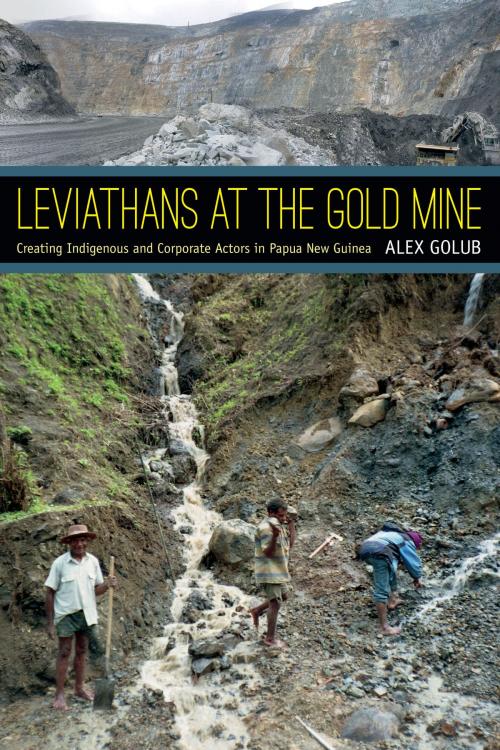Leviathans at the Gold Mine
Creating Indigenous and Corporate Actors in Papua New Guinea
Nonfiction, History, Australia & Oceania, Social & Cultural Studies, Social Science, Anthropology| Author: | Alex Golub | ISBN: | 9780822377399 |
| Publisher: | Duke University Press | Publication: | February 3, 2014 |
| Imprint: | Duke University Press Books | Language: | English |
| Author: | Alex Golub |
| ISBN: | 9780822377399 |
| Publisher: | Duke University Press |
| Publication: | February 3, 2014 |
| Imprint: | Duke University Press Books |
| Language: | English |
Leviathans at the Gold Mine is an ethnographic account of the relationship between the Ipili, an indigenous group in Papua New Guinea, and the large international gold mine operating on their land. It was not until 1939 that Australian territorial patrols reached the Ipili. By 1990, the third largest gold mine on the planet was operating in their valley. Alex Golub examines how "the mine" and "the Ipili" were brought into being in relation to one another, and how certain individuals were authorized to speak for the mine and others to speak for the Ipili. Considering the relative success of the Ipili in their negotiations with a multinational corporation, Golub argues that a unique conjuncture of personal relationships and political circumstances created a propitious moment during which the dynamic and fluid nature of Ipili culture could be used to full advantage. As that moment faded away, social problems in the valley increased. The Ipili now struggle with the extreme social dislocation brought about by the massive influx of migrants and money into their valley.
Leviathans at the Gold Mine is an ethnographic account of the relationship between the Ipili, an indigenous group in Papua New Guinea, and the large international gold mine operating on their land. It was not until 1939 that Australian territorial patrols reached the Ipili. By 1990, the third largest gold mine on the planet was operating in their valley. Alex Golub examines how "the mine" and "the Ipili" were brought into being in relation to one another, and how certain individuals were authorized to speak for the mine and others to speak for the Ipili. Considering the relative success of the Ipili in their negotiations with a multinational corporation, Golub argues that a unique conjuncture of personal relationships and political circumstances created a propitious moment during which the dynamic and fluid nature of Ipili culture could be used to full advantage. As that moment faded away, social problems in the valley increased. The Ipili now struggle with the extreme social dislocation brought about by the massive influx of migrants and money into their valley.















